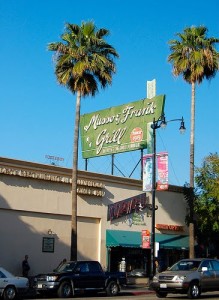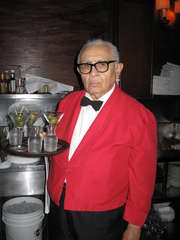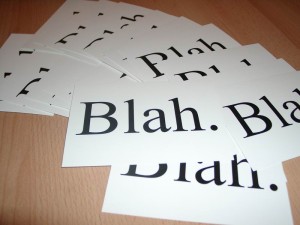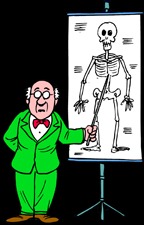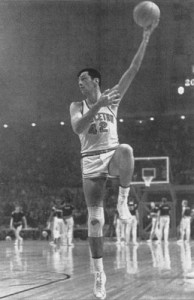I asked James Scott Bell to come in and post early this week because on my way home the other night I killed a deer. It was a small, but nice four-point buck, who presented himself broadside to me and I shot him with the front end of my Toyota Highlander, which I’d owned outright for exactly one month, having paid off the note after five years of installments. I was lucky I’m too old to have fast reactions or I might have been killed or killed somebody when I swerved to avoid him. I didn’t even leave skid-marks on Highway 49. Mr. Deer took out my grill, radiator, plastic engine cover, hood, fenders and my windshield and did two dollars short of $5,000 dollars worth of damage.
Here’s the thing. I wasn’t shaken up, but I was pissed off at myself for not seeing the thing until it was being eaten by my SUV. And I was mad that I’d have to waste all that young meat that had just been tenderized by thousands of pounds of flying Japanese hammer. My dear wife had to come the six miles get me in her Miata and there was no room for the animal. I think wasting a game animal is a sin, and I never kill what I won’t eat or what won’t eat my chickens or dogs. The point of this story is that a man in a pick-up the size of a Sherman tank (and its bed filled with split logs) pulled over, turned around and drove back to where I was standing, surveying the dead animal, which was behind me. This man drove off the highway, parked on the slope twenty feet above me, and rolled down his window. The first thing he said was, “Are you all right?”
“I am perfectly fine,” I said. “Would you like a nice freshly killed deer? I seem to have one on my hands.”
Turned out he was not a hunter, nor much interested in the animal’s meat. He raised meat cows, which are never referred to as “cows,” but “steers or Doughgees.” Evidently males are what you eat if you are not a vegan. What he offered me was a warm backseat to sit and make my phone calls. Wife. Insurance company. The deer’s parents.
I realize very often that this kind of thing is what living in the country is all about. Not hitting deer so much as people surprising you with their concern and unselfish assistance. Scott Cress was his name and he stayed with me until my wife got there and he invited her into the warm truck and she climbed in. After we all started talking, it turned out we knew a lot of the same people, and his brother-in-law is an acquaintance of mine. But Scott didn’t know me, but he stopped and took an hour out of his evening at home with wife and kids to make sure I was all right.
When the highway patrolman pulled up, my new pal, Scott, called him by his first name, and the patrolman asked me if I wanted the deer. A warm deer on the ground is a commodity in some places, even a deer with four broken legs and half its antlers gone God knows where. We all agreed what a shame it was. That nice young patrolman stayed there until the wrecker showed up and we had all driven away.
As I’ve said before, I am a mall-town boy, and I love living out in the middle of nowhere. A lot of the reason beside the amazing quiet and the privacy is because neighbors are just so gosh-darned neighborly. You get to know your neighbors slowly in a rural setting and friendships (like anything that cures as it ages) are better that way. They don’t trouble you, but if you need them they are right there. After the third generation of you grows up around here the locals even stop calling your descendants “newcomers.”
When I went into town the next day I saw the deer lying where my Toyota had left him, but by that evening, he was gone, just as I knew he would be. You see, Scott Cress raised cattle, but his day job was working for the state running a road crew. He told me he’d get the deer tidied up the next day so I didn’t have to look at it and cuss when I saw it, and he was as good as his word.
So now I’m hauling chicken feed in a fancy rental car that is a Chevy that looks like a 30’s roadster. So I have to drive a pug ugly silver Dick Tracy looking low rider for the next two weeks while they fix my Totoya with its NC plates and the all-important NRA sticker on the windshield.

